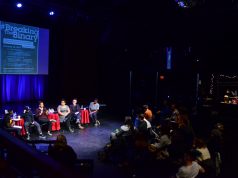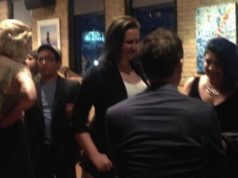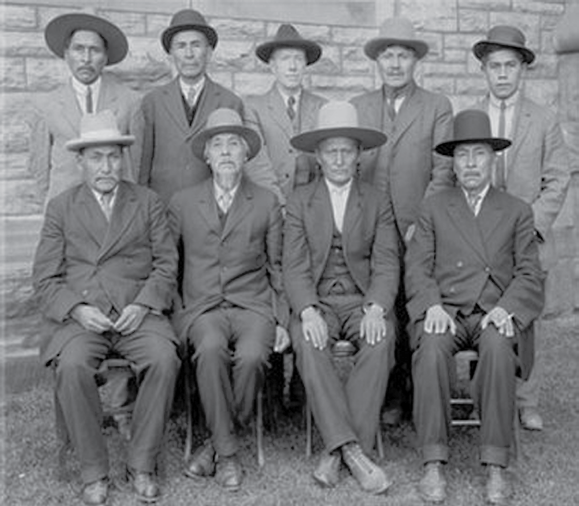
Laurier was moved and promised, as politicians do, that if re-elected he would take the conservative BC Government under Richard McBride to court and get them to sign treaties with the native tribes of the province.
There were very few treaties in British Columbia between the native peoples and government then (which could be seen as similar to today), and the BC government opted to act unilaterally and ignore the process altogether. Disputes over native lands and immigration were the main conservative issues of the day. Sound familiar? Robert Borden ran on a campaign of “A White Canada” directed against Aboriginals and Chinese immigrants in British Columbia. This campaign delivered every single federal seat in BC to the Conservatives, and Borden defeated Wilfred Laurier’s federal Liberals in 1911.
At one time, Premiere McBride was seen as a possible replacement to Borden as the leader of the federal Conservatives. But McBride opted to stay provincial, and once Borden was in power McBride called in a favour for not running nationally; and thus the McKenna McBride Royal Commission was established to “solve” the Native Lands issue once and for all.
What resulted was relocation, reduction, and the removal of Native peoples from their already established reserve land base onto often less beneficial or greatly reduced lands. Under amendments to the Indian Act natives were restricted from leaving the reserve, from hiring their own lawyers, and from gathering in groups for religious or political purposes. They were also discouraged from competing directly with white farmers, and were forced to sell their farm produce on reserve only. It was at this time that the Residential School system began to ramp up… The deep legacy of these colonial policies are still felt today.
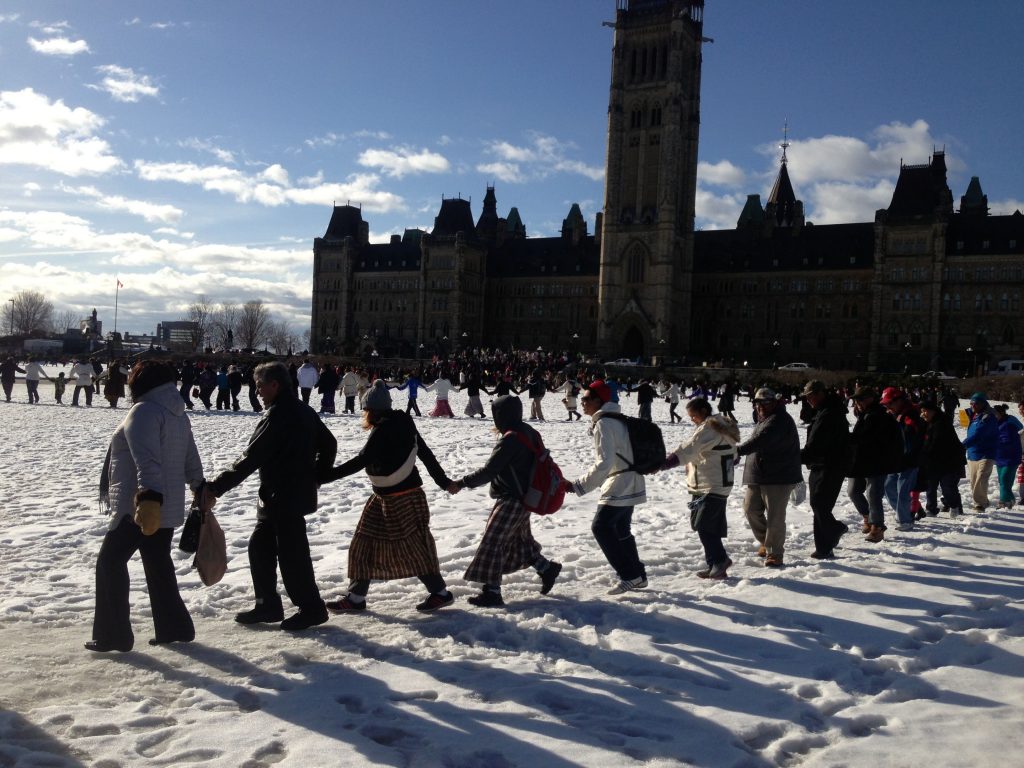
Fast-forward to the 2015 election cycle, which in my mind has the distinction of being the most racist campaign since Borden’s successful bid 104 years ago. In 2015, the economic policy debate goes hand-in-hand with the wedge politics and bald-faced racism at the federal level. How can a political party in this day and age deliberately target an already demonized minority of Canadians and be entrusted with our sanction to lead? What has happened to the Canada I grew up in? What happened to multi-cultural, pluralist Canada? Have we devolved so far? Maybe we haven’t changed at all.
Bob Zimmer, conservative MP running for re-election in Prince George- Peace River, said during an all candidates’ debate, “One of the drivers of missing and murdered aboriginal women is… the lack of a job. Ultimately when people have a job, they’re not in despair. They can stay on reserve, and that’s where we want them to be.” That’s where we want them to be? This guy is already an MP!? With this kind of ammunition, I did what any modern citizen does these days, I expressed my outrage on Facebook. I was determined to get people to vote and vote for change.
Across the country many First Nations people are coming out to vote in this election for the very first time. I am N’lakap’amux. We are an interior Salish tribe located in the Thompson-Nicola region and the Fraser Canyon of BC. And like most tribes in BC, we haven’t signed a treaty with the Government of Canada, so technically we are a sovereign people even though we are administered under the Department of Aboriginal and Northern Affairs. Many First Nations people refuse to vote, believing that any endorsement of any party is tantamount to supporting the enemy.
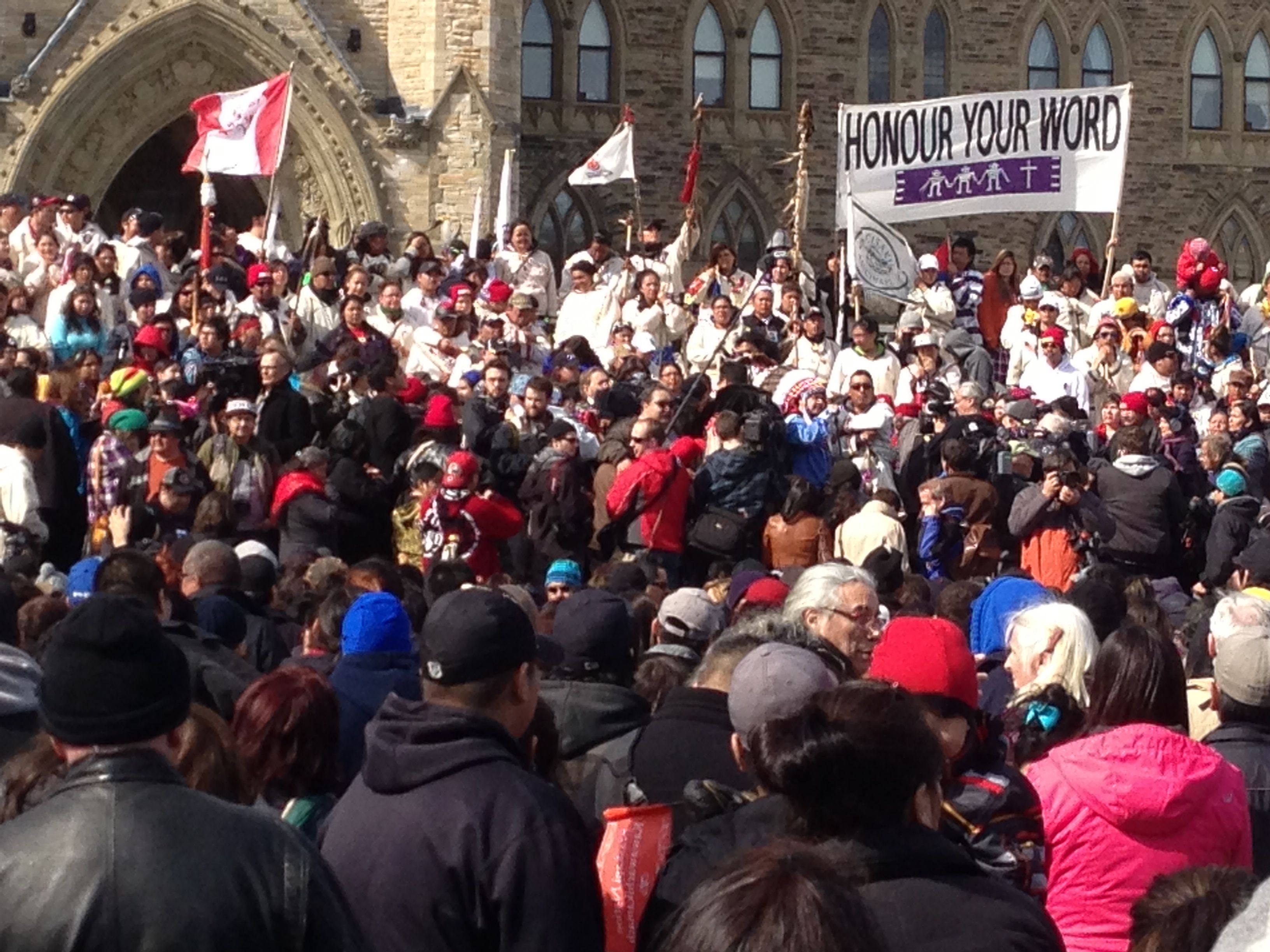
I got into a heated Facebook debate with a really nice guy (and well known Aboriginal artist) that I’ve known since childhood about the importance of voting in this election. In my over-zealous attempt to get him to vote, I ended up bullying him and alienating him further. My passion overrode my discretion. My argument was, “If you don’t vote, you can’t bitch.” You can’t complain about a government you did nothing to try to alter. His argument was that it doesn’t matter which party forms a government, it cannot represent him because by endorsing any party he would be endorsing the continual suppression of his peoples’ sovereignty. Conscientious objection.
I challenged him to research the work of the Allied Interior Tribes, a precursor to the Union of British Columbia Indian Chiefs. How they marched on the Victoria Legislature, Parliament Hill, and even Buckingham Palace to demand inclusion, recognition of their sovereignty, and a seat at the table. How our ancestors fought to gain the vote in 1960. Before that a First Nations person would have to give up his identity as an “Indian” to be “enfranchised” as a citizen of Canada. His point of view was only solidified. He would never vote. And I was simply “colonized” for voting.
The truth is, I really can’t blame him. I get it. I disagree, but I get it. Because what will actually change with a new government? Under the Liberal decades the same kind of suppression of aboriginal rights and sovereignty took place as the Conservatives. The first Trudeau tried to introduce the “White Paper” an attempt to abolish Aboriginal rights and title. Maybe under an NDP government we’d see some real change … but what are the chances of that? Only Albertans know for sure.
In 2015 Canada hasn’t evolved beyond the demonization of racial minorities for political gain. Bigots make up a large enough portion of our electorate that wedge politics can take hold. We still have a long long way to go with regards to Aboriginal issues. Under the Conservatives we’ve seen nothing but devolution. And the myth of the multi-cultural all-inclusive Canada fostered under the first Trudeau Government may very well be in its death throes. All I have to counter this offensive political climate is my vote. I voted for change. I sure hope we get it.






